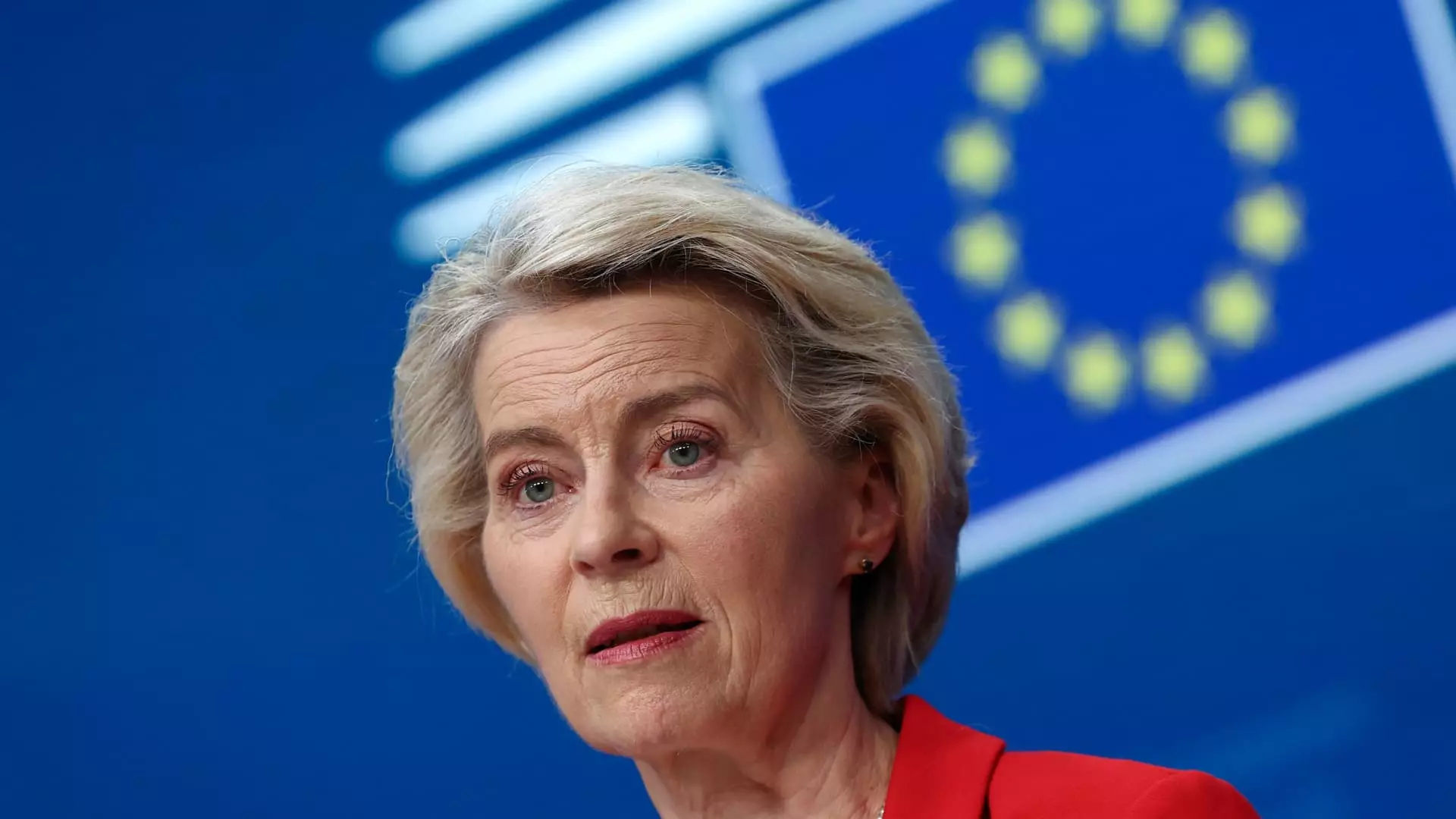In an increasingly volatile global economic landscape, the European Union finds itself teetering on the edge of a trade precipice, with U.S.-initiated tariffs threatening to destabilize decades of intertwined economic ties. The EU’s decision to suspend retaliatory tariffs—initially scheduled for immediate implementation—signals a strategic shift pushed by the desire to foster diplomacy rather than escalate conflict. While this temporary reprieve offers a moment of hope for negotiations, it also exposes the fragility of transatlantic relations and the underlying tensions that have long simmered beneath diplomatic veneer.
President Trump’s late July announcement of 30% tariffs on EU goods and Mexico’s metals imports was more than a mere trade maneuver; it was a pointed reminder of the vulnerabilities faced when economic leverage becomes a political tool. The EU’s response, delaying countermeasures until August 1, reflects a calculated attempt to keep dialogue open, but it is also a gamble—an acknowledgment that trust has eroded and conversations are marred by mutual suspicion. Such moves underscore a broader uncertainty: is this merely brinkmanship, or the prelude to a fundamental overhaul of Western trade frameworks?
The EU’s resolve, articulated through Ursula von der Leyen’s insistence that “we have until August 1” to strike a deal, reveals a nuanced balancing act. On one hand, Europe prefers diplomacy, fully aware that retaliatory measures could harm vital sectors—pharmaceuticals, automobiles, aircraft—that constitute the backbone of its exports. On the other hand, preparing for the worst illustrates the continent’s readiness to defend its economic sovereignty. This dual posture hints at a deeper malaise: a recognition that the current U.S. administration’s approach to trade is unpredictable at best, disruptive at worst.
Global Economic Ripples and Strategic Vulnerabilities
The implications of these tariffs extend far beyond the immediate scope of EU-U.S. relations, threatening to reshape the very fabric of global commerce. An estimated €1.7 trillion was traded in goods and services between the EU and the U.S. in 2024, a staggering figure illustrating the interconnectedness of markets. Imposing tariffs on such a scale risks rippling through supply chains—from European wine producers and German automakers to American tech firms—potentially fueling inflation and economic instability across continents.
What is perhaps most disconcerting is the underlying narrative behind these trade tensions: Trump’s framing of the trade deficit as a “national security threat.” Such language transforms economic disputes into geopolitical conflicts, placing the global economic order on uncertain footing. The assertion that tariffs are a necessary weapon to revive U.S. economic strength reveals a troubling shift away from multilateral cooperation toward protectionist nationalism. This approach, cloaked in the rhetoric of national security, undermines the very principles of open trade and market stability that have fostered decades of economic growth.
Yet, beneath this confrontational surface, there is an opportunity—albeit a slim one—for more pragmatic diplomacy. Italy’s Foreign Minister Antonio Tajani’s visits to Washington and his plea to “negotiate with one’s head held high” exemplify a recognition that mutual respect and strategic patience are essential. The challenge lies in translating diplomatic diplomacy into tangible agreements, which remain elusive in an era characterized by populist rhetoric and transactional politics. The EU’s internal debate—between vocally defending its interests and pragmatically engaging—mirrors the broader hesitations many Western nations feel about risking future cooperation for short-term gains.
The Future of Transatlantic Relations: Negotiation or Breakdown?
The coming days will be pivotal in determining whether these tensions will simmer down into a workable agreement or escalate into a prolonged economic clash. The EU’s pageant of foreign ministers preparing to address not only U.S. relations but also those with China signals a broader concern: the global order is under strain, and alliances are being tested in unpredictable ways. The Europeans are trying to navigate a complicated web of economic interests, geopolitical ambitions, and domestic pressures—an intricate dance that demands both strength and flexibility.
Ultimately, this saga exemplifies the perilous nature of modern trade diplomacy, where economic decisions are often driven less by mutual benefit than by political posturing. If history is any guide, such confrontations tend to favor the powerful: the nation willing to impose the most damage tends to win, leaving the weaker party to pick up the pieces. Europe’s challenge is to avoid falling into this trap, to stand firm on its principles without capitulating to aggressive tactics that threaten long-term stability.
The trajectory of EU-U.S. relations remains uncertain, but what is clear is that in the realm of global trade, diplomacy has become a game of brinkmanship. The outcome depends on Europe’s capacity to assert its interests compellingly while resisting the siren call of retaliation. That balance—delicate and easily upset—will ultimately determine whether this chapter ends in negotiated peace or an enduring economic rift.

Leave a Reply